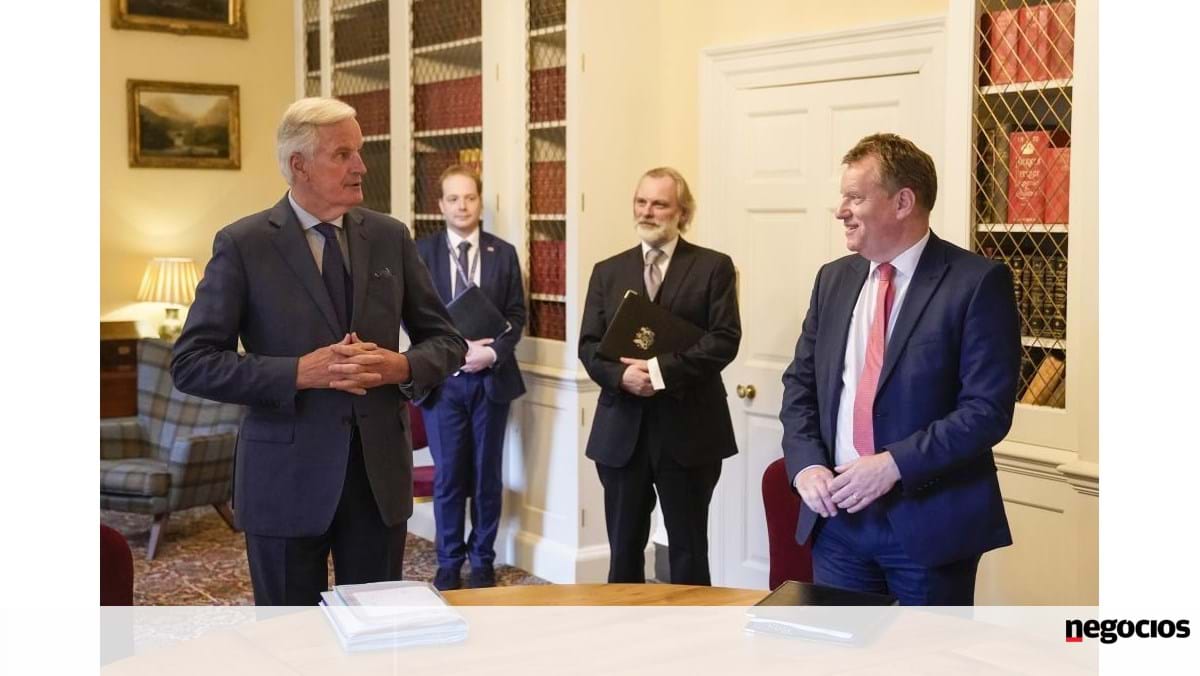Like the previous ones, the eighth round of negotiations between the United Kingdom and the European Union with a view to an agreement on the future trade relationship ended without any understanding between the parties. This time, however, the positions have become extreme and the possibility of a chaotic divorce is increasingly seen as inevitable.
In a statement, the European responsible for Brexit negotiations, Michel Barnier, informed that the United Kingdom did not get involved in the fundamental principles and interests of the EU so that there are still significant differences in areas of essential interest to the regional bloc.
These areas include fisheries, judicial cooperation and competition, themes that have separated London and Brussels since the beginning of the negotiations.
In view of this impasse, and in a sign that the negotiations may even fail, the European Union official admitted that the bloc is already intensifying its work of preparation to be ready for all scenarios.
Barnier’s view was corroborated by his British counterpart David Frost, who said in a statement that “a number of challenging areas remain and that divergences in some areas are still significant”.
Talks will resume in Brussels next week, but the picture is increasingly bleak: there is about three and a half months to end the transition period, which maintains the UK’s access to the European single market and the customs union, but the possible agreement between the parties should be completed by the end of next month, to allow time for the Council and the European Parliament to comment.
In any case, should the negotiations fail to reach a successful conclusion by the end of the transition period, on 31 December, trade relations between London and the 27 EU Member States will be governed only by the rules of the World Trade Organization , in particular as regards customs duties.
Amendment to the Brexit agreement further threatens negotiations
Negotiations on the future trade relationship between the United Kingdom and the EU were even more threatened after the British Government presented, on Wednesday, in Parliament, a draft law aimed at modifying the provisions agreed with Brussels on the border between the two Irish.
The EU has already made an ultimatum to London, giving the proposal three weeks to withdraw, because otherwise it will move to justice.
This ultimatum, however, has already been rejected by Boris Johnson’s Executive, who argues that the British Parliament is sovereign and can pass laws that violate the country’s treaty obligations.
And the London position has already been transmitted directly to Brussels: British Minister of Ministers Michael Gove has announced that he has already told European Commission Vice President Maros Sefcovic that we are not going to withdraw this legislation.
We have to ensure that the protocol is implemented in a way that respects the fact that Northern Ireland is an integral part of the United Kingdom, said Gove.
At issue is a text that concerns the British internal market and modifies, in particular, the protocol that prevents the return of a physical border between Ireland and Northern Ireland at the end of the post-Brexit transition period, which ends on the 31st from December.
Boris Johnson, argued that the proposed law aims to protect the country from “extremist or irrational interpretations” of the European Union (EU) Withdrawal Agreement.
The Withdrawal Agreement and the Northern Ireland Protocol were drafted with the aim of protecting the peace process in Northern Ireland, avoiding the need for a physical border between British territory and EU member Ireland, so any control Customs would have to be done between Northern Ireland and the rest of the United Kingdom, which are separated by the Irish Sea.
– .


